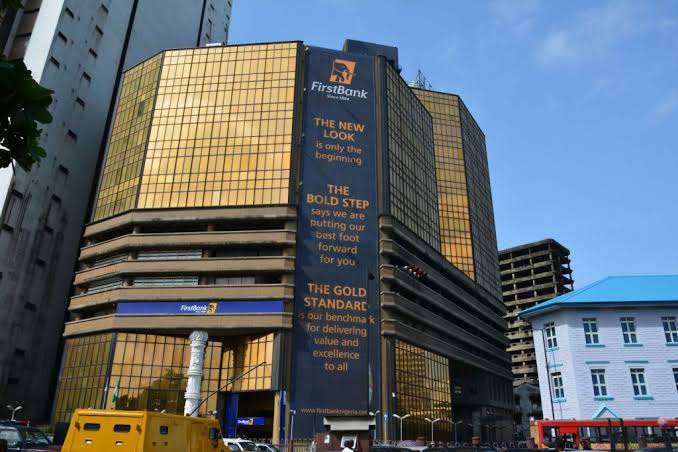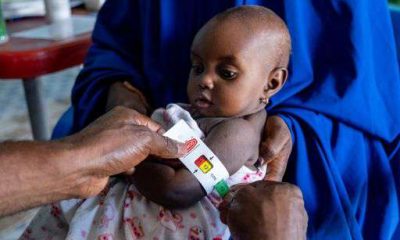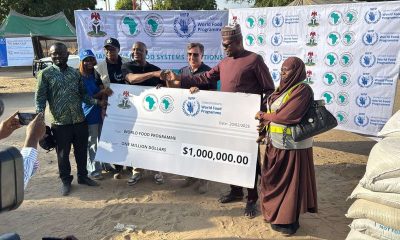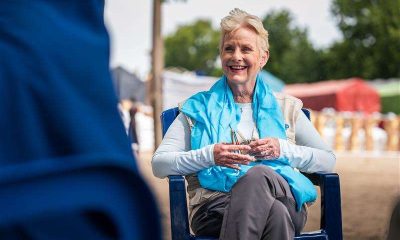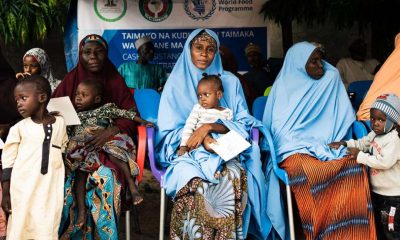Business
Germany backs second phase of UNICEF-WFP resilience programme in Northeast Nigeria with €20m support

The German government has reaffirmed its commitment to rebuilding lives and strengthening resilience in Northeast Nigeria with the launch of the second phase of a joint UNICEF-World Food Programme (WFP) initiative targeting vulnerable communities in Borno and Yobe States.
With €20 million in funding from the German Federal Ministry for Economic Cooperation and Development (BMZ), through KfW Development Bank, the expanded programme aims to build on the successes of the initial phase which benefited over 150,000 people – including children under five, pregnant and breastfeeding women and girls, out-of-school children, and food-insecure households.
The new phase will scale up access to critical services, food security, and peacebuilding efforts, extending its reach to more than 200,000 people. It will also expand geographically to include four new local government areas: Bama and Konduga in Borno State, and Potiskum and Jakusko in Yobe State.
Years of insurgency and violence in Northeast Nigeria have decimated livelihoods, fractured communities, and left women and children especially vulnerable. Compounding the crisis are worsening climate conditions that have displaced families, destroyed farms, and deepened food insecurity and malnutrition across the region.
The second phase of the resilience project aims to address these challenges by delivering a wide range of life-saving and life-improving services, including child protection, clean water access, improved nutrition, education, vocational training for out-of-school youth, conditional cash transfers, support for smallholder farmers, peacebuilding clubs in schools, and environmental restoration initiatives.
“Food insecurity in Northeast Nigeria remains a major challenge, worsened by climate change and economic pressures,” said David Stevenson, WFP Country Director in Nigeria. “With the continued support of the German government, we are restoring food systems and improving nutrition outcomes. Phase II will build on this momentum and reach more communities.”
UNICEF Nigeria Representative, Cristian Munduate, also praised the programme’s impact on the most vulnerable, especially children and women. “Northeast Nigeria remains one of the hardest places to be a child or woman. That’s why this project matters. Phase one has already improved lives at the household level. We thank the German government for sustaining this critical support.”
Dr. Karin Jansen, Head of Development Cooperation at the German Embassy in Abuja, highlighted Germany’s long-term commitment to locally driven recovery efforts in Nigeria’s conflict-affected northeast. “By working with trusted partners like UNICEF and WFP, we’re supporting community-led resilience against the dual threats of conflict and climate. This is especially important for children and women.”
Since the programme’s inception, significant progress has been made: over 60 solar-powered boreholes and 18 hand pumps have been constructed or rehabilitated, providing safe water to nearly 300,000 people. Nearly 40,000 out-of-school children have returned to classrooms through formal and informal learning centres. For more than 6,000 smallholder farmers, access to drought-resistant seeds and solar irrigation pumps has led to improved crop yields, better nutrition, and higher household incomes.
Stakeholders say the programme represents a model of effective humanitarian-development collaboration and has the potential to transform the region from one of prolonged crisis to recovery and self-reliance.
With continued investment and collaboration, the initiative aims to secure a resilient, inclusive, and dignified future for communities across Northeast Nigeria.



